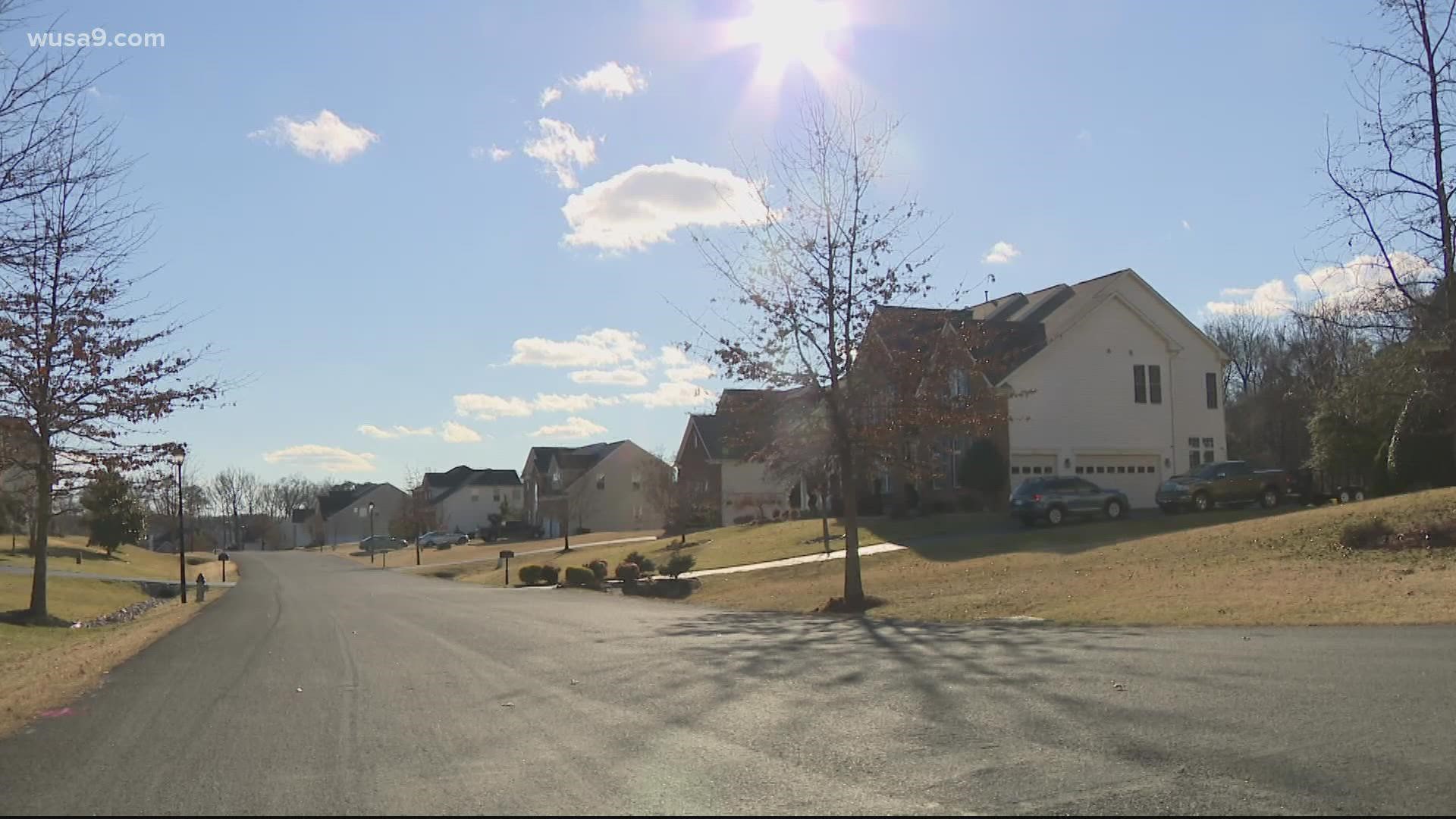WASHINGTON — Editor's note: The above video is from November 2021.
A 54-page report released by the Interagency Task Force on Property Appraisal and Valuation Equity Wednesday, confirmed what many Black and brown homeowners alleged for years: Houses in majority-minority neighborhoods are frequently undervalued.
“ ... data finds 12.5 percent of appraisals for home purchases in majority-Black neighborhoods and 15.4 percent in majority-Latino neighborhoods result in a value below the contract price, compared to only 7.4 percent of appraisals in predominately White neighborhoods,” the report cited.
Several WUSA 9 investigations have detailed the extent of alleged home appraisal bias and the impact it has on families.
“How is it that the wood and the walls and the nails that were used… how are they worth less than what they cost us?” wondered Jacqulyn Priestly, when she spoke with WUSA 9 last summer about her Bowie, Maryland home that appraised roughly $500,000 less than what it cost she and her husband to build.
The report also showed even the slightest undervaluation on a house can result in lower appraisals for an entire neighborhood. Since home appraisers often use a comparison sales approach when determining a home’s value, a low home appraisal can become a “comp” for another transaction and another, thereby contributing to lower home appraisals in a neighborhood.
Home valuation equity is a matter of concern because homeownership is a principal creator of wealth. According to the National Association of Realtors, “homeownership is the largest source of wealth among families, with the median value of the primary residence worth ten times the median value of financial assets held by households.”
Analysts believe addressing home appraisal bias will help shrink the wealth gap between White, Black, Latino and other communities of color. In addition to outlining the history and impact of appraisal bias, the report detailed action items; some of which include strengthening guardrails against unlawful discrimination in all stages of residential valuation, enhancing fair housing enforcement, and diversifying the appraisal workforce among other recommendations. A senior official told WUSA 9 much of the action taken by the task force and the Biden administration will not require legislative intervention though some might be necessary.
In February, Congresswoman Maxine Waters (D-CA) sent a letter to Secretary of Housing and Urban Development Marcia Fudge detailing her plans to introduce legislation to address appraisal discrimination. In her letter, she cited another letter from an appraiser where the person refers to minority children as ''illigitimant" [sic] and "poorly educated".
"They [the author of the letter] reveal and perpetuate the false stereotypes upon which racism was founded and continues to shape communities across our country today," said Waters in her letter to Secretary Fudge.
Advocates like those with the Fair and Unbiased Appraisal advocates, a group of stakeholders and homeowners in Prince George's County that formed to combat appraisal bias, were anticipating the release of the report that members said was critical in addressing alleged home appraisal bias.

